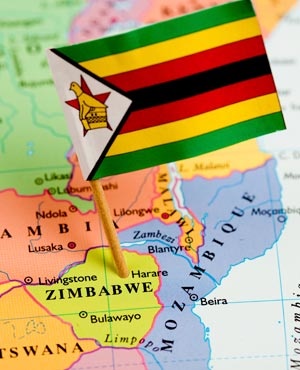2017-11-20 15:17

Nontsikelelo Mpulo
On 13 April 1993, President Nelson Mandela addressed South Africa, calling for calm and for the efforts toward a peaceful transition from apartheid rule to continue.
The seminal speech was delivered to avert the threat of a descent into outright civil war when Chris Hani was gunned down in front of his Dawn Park home three days earlier. I was just 18 years old and I had started my first year at the University of the Witwatersrand (Wits).
On the blue-grey wall of the sports science building at Wits was the first sign that you’ve left the grand old East Campus across the bridge and have entered the West Campus, where the Commerce faculty is still based. What was scrawled on this wall during that time is etched in my memory forever: “South Africa the land of milk and NO HANI” screamed the yellow graffiti.
Ironically, I attended the Global Investigative Journalism Conference at Wits from 16-19 November this year, and it was the same week that Justice Minister Michael Masutha made a ruling about the request for parole for Janusz Walus. The man convicted of killing Chris Hani was denied parole yet again because he showed no remorse for his actions. Walus still believes that he was justified in killing Hani because he was a Communist.
It was a turning point in our history because Mandela is reported to have used the threat of destabilisation of the country to force the nationalist government to agree to an election date, which saw the people of this country released from decades of oppressive apartheid rule.
It is said that the fall of apartheid was precipitated by a significant geopolitical shift in Western and Eastern Europe. The fall of the Berlin wall in 1989 spelled the end of Communist rule in Europe thus denuding the power block that the apartheid government so feared and vilified. “Die Rooi Gevaar” had essentially been neutralised and its machinations had begun to be dismantled.
This paved the way for negotiations that led to the unbanning of the ANC and other parties engaged in the struggle against apartheid. It would appear that another seismic geopolitical shift is about to change the course of our history – depending on how our ruling party deal with it.
On 15 November 2017, social media erupted with the news that tanks were spotted headed towards Zimbabwe’s capital of Harare. Rumours of a coup abounded. The country stood at a knife’s edge. As the week drew on and more journalists were able to enter the country it emerged that there was to be a negotiated settlement where Robert Mugabe was to step down as president of Zimbabwe, in exchange for safe passage out of the country for him and his family.
On Saturday, 18 November, Zimbabwean citizens took to the streets lined with military personnel and tanks, in a peaceful march. We saw images of people who appeared elated. They were jubilant at the prospect of getting out from under the yoke of Mugabe’s largely destructive 37-year rule, certainly in the second half. The scenes were reminiscent of the fall of the Berlin wall.
In a statement, the Zanu-PF central executive command gave Mugabe an ultimatum: resign by midday 20 November or impeachment proceedings would be instituted. The defiant Mugabe addressed the nation on 19 November calling for new and old leadership to co-operate to ensure the stability of the country and put shoulder to the wheel in preparation for the agricultural season ahead.
He pretty much gave them the middle finger and said that the party would sort out all of this “misunderstanding” at the national congress which is scheduled for 12-17 December 2017.
Incidentally, South Africa is at another turning point in history. During the same week that the Zanu-PF is to hold its national conference, the ANC will hold its own elective conference.
Will the impending fall of Mugabe spell changes for the political trajectory of the Zuma faction in South Africa? The two country’s leading men appear to have been reading from the same script in the last 10 years.
Mugabe is said to have been preparing to install his wife, Grace as deputy president of Zanu-PF, in order to ensure his continued grip on power. President Jacob Zuma is rumoured to be facilitating the appointment of his ex-wife, Nkosazana Dlamini-Zuma, as the next leader of the ANC, amongst other more dastardly moves, ostensibly to protect himself from prosecution for the 783 counts of corruption which he still needs to face.
Should the bloodless coup in Zimbabwe succeed, could this embolden the anti-Zuma faction inside the ANC to take more decisive action? Could we see a leader emerge from within those ranks who is astute enough to restore the nation’s trust in the ruling party and quell the inevitable fallout from the Zuma faction, as Mandela did with the nation when Chris Hani was killed.
There are darkening clouds on the horizon and the approaching storm is bound to wreak havoc, uprooting trees and tearing off roofs. But once it is over, for it surely will pass, could South Africa, and the region emerge into a bright new day. One has to hope.
– Nontsikelelo Mpulo is a senior communications officer at SECTION27. She writes in her own capacity.
https://www.news24.com/Columnists/GuestColumn/regional-geopolitics-could-pave-the-way-for-change-in-sa-20171120


